How to Turn War Trauma into Music
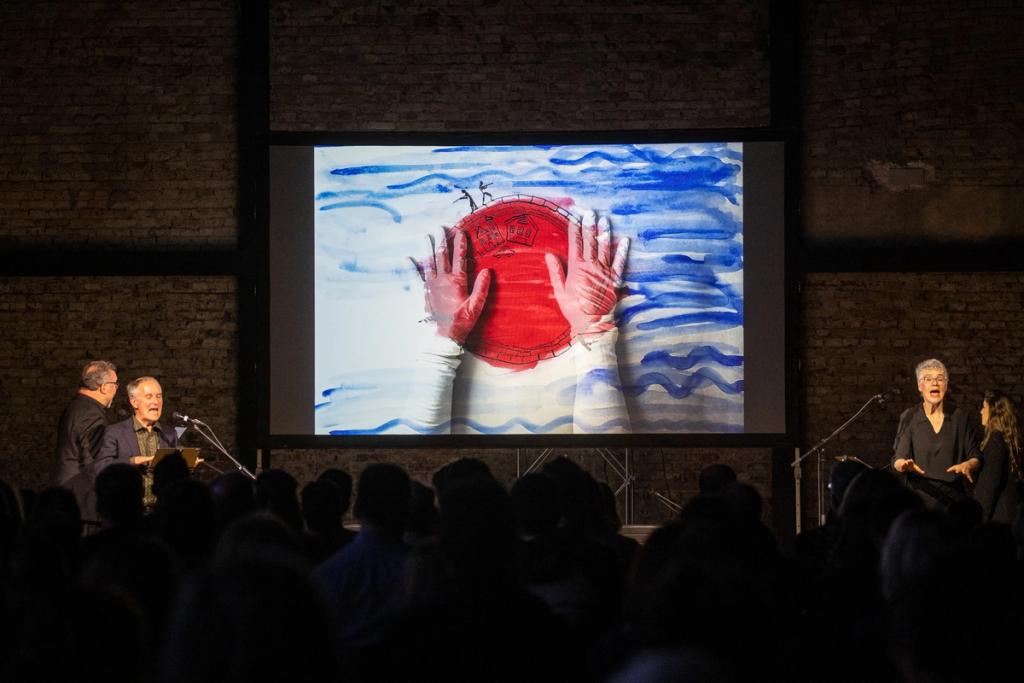
The works from the “Balkan Affairs” project — in their composers’ own words.
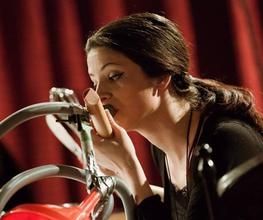
Hanan Hadžajlić (*1991, Bosnia and Herzegovina)
Requiem Ex Machina
“I was not in the war, thank God. But I know many people who were — people who lost family members, parts of their bodies etc. My generation grew up surrounded by war-related narratives, but I never felt adequate enough to go there directly. My composition is a subtle comment on this theme through the prism of the Abrahamic religions. I used excerpts from Orthodox prayer, a melody from the Islamic call to prayer, silent dhikr — and fragments of the Requiem text. The subject itself was too frightening for me, and I immediately thought of Mozart’s Requiem, which is both sublime and scary. So there’s a reference to Mozart as well.
In the Balkans we were surrounded by politics. It’s a routine. In the 1990s, nationalism and populism were very popular. We were the pioneers! Now the West is going through the same thing, and we could give lectures on it. But I wanted to step away from political commentary. I needed something spiritual. In a way, I went to the source — because during the wars people kept returning to religious matters.
Later we had a different commission — to conduct interviews with people from our countries. Of course, if you ask people who started the war and who is to blame, you’ll just get another war. So my questions were more about how people manage to coexist and cooperate. We need that in order to survive. And we in the Balkans know that.
I live in Bosnia, which is truly multicultural. Being surrounded by this diversity is a blessing — especially in a world where everything is becoming too similar. Just don’t tell me about “my culture” and how I should be proud of it. What is that supposed to mean? I change every day. I don’t know what I’m going to say tomorrow.
As a coda, I wrote a piece (basically a song) for Johanna Vargas, soprano of Neue Vokalsolisten. It goes with tape and video, and explores certain complexities of popular music. It’s slightly outside the contemporary music canon — or the “sample library” genre, as I call it. Usually it takes three seconds to identify which genre you belong to. And if you mix two sources — you’re instantly labelled “experimental”. Meaning: we don’t know how to market this.
The text also refers to the children of Abraham. So, I begin and end with this theme. Because the idea of division — of separation — is deeply embedded in every Abrahamic religion. Adam and Eve, Abel and Cain, the very concept of the devil… Even the sky and the sea were divided. Everything came from one soul, and everything was split. There is always this moment of betrayal. Even in Abraham’s family tree there is division. It’s painful. That’s the world we live in.
It probably sounds like: “Oh, I want world peace.” Of course I do. But this is a reflection on a very personal level. Look at the world today. What are you doing? Why? For whom? Where are you — personally — inside all of that? Don’t tell me about “my culture”. Where — are — you? What is your real space? What is your voice?”
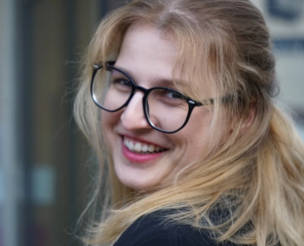
Helena Skljarov (*1993, Croatia)
The Blue Giraffe
“The whole idea was very challenging for all of us. This project — reflecting the Balkan wars — is being made by young composers who never actually experienced the war. We were given tremendous artistic freedom. And the pieces all turned out to be very different.
My piece is a fairy tale about a blue giraffe, set in an imaginary dystopian city. Basically a children’s story — just a rather brutal one. It deals with the consequences that come after any war: hatred, discrimination, prejudice against foreigners, against ‘the Others’. Some listeners have said it reminded them of The Little Prince by Saint-Exupéry.
It is not about the Balkan wars per se — it’s about any war. This imaginary city is afraid of this creature with a different — blue — skin color. And in the end, we discover he never had blue skin at all. He just lived in the forest, in the shadows. We are all the same. So it’s definitely an anti-war piece.
I never thought I had any kind of war trauma. Why would I? I wasn’t even born then! But now — three years after we started this project — I’ve begun asking myself: why did I choose a fairy tale as my form? Why “any war” and not this particular war? Why an abstract city? Why didn’t I address the topic directly? Could it be a form of self-protection — a way to keep distance from the subject? Is it possible I’m carrying this trauma in me after all?”
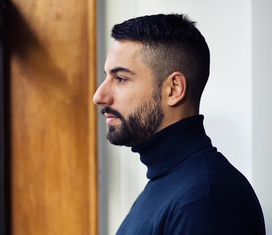
Jug Marković (*1987, Serbia)
NULA
“I rarely generate verbal concepts — mystical or political. I think musically. For me, everything starts with sound. The connection between music and the world is completely arbitrary. That’s why this project was unusual: it forced me to begin from a concept. Also, I didn’t want to deal directly with the theme of war and do something that has already been done by hundreds of my colleagues — especially in literature and film. I didn’t want to be pathetic. So I decided to use my childhood memories of living in Belgrade in the 1990s. I was a kid — not old enough to understand the gravity of what was happening. For me, it was mostly fun. Like exchanging currency on the street, or buying petrol with my father. It felt like an adventure.
I made a list of objects, images, phrases, situations, smells and colours that I associate with growing up in Belgrade at that time — and I used that as compositional material. For example, “devize” — the dealers who exchanged dinars for German Marks on the street would constantly repeat this word to attract customers. You would hear this buzzing, “zzz” everywhere — devize, devize, vzz, vzzz. Or the smell of petrol, which I loved — and still love. I still spend time at gas stations because it is the smell of my childhood.
The consequences of the war were different in each of our countries. In some places bombs fell and buildings were destroyed. Elsewhere, the main damage was economic, families broke apart, and life collapsed in other ways. I lived in a country that was mostly devastated by the financial consequences of war — not by violence per se. Inflation was the most visible thing. So I also used daily inflation rates from December 1993 and the denominations of dinar banknotes as material for the piece. “Nula” means “zero” — all those endless zeros on the banknotes.
The first thing that comes to mind when you think of war is violence — not currency exchange. We’ve seen countless films where soldiers bring violence. But nobody shows the everyday life of ordinary people who refused to go to war, who were opposing it and were trying to live their lives. There is no sensation in that — so it remains hidden. And I deliberately chose to work with these themes. These are my Balkans of the 1990s.”
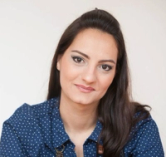
Ana Pandevska (*1985, Macedonia)
Electroacoustic mantra From Ex YU to EU
“My idea was to write about what was happening with my country, Macedonia, as a consequence of the breakup of Yugoslavia. I decided to call it “Mantra", because our country's attempt to become part of the EU has been lasting for 33 years now. All those constant talks about joining Europe was like a mantra that stuck into my head. Like an ear worm or bad TV commercial. That’s why I chose musical form of a rondo, which itself presents a circling form, a sort of loop that goes on.
Later, we added video part — with young Macedonian film director, Anastasija Lazarova Pilling, we filmed a few people talking about their experience and their memories from Yugoslavia. And for Voices. Berlin festival, I wrote new composition, using the previous material, but in a game form, so that the seriousness of the theme converted into something ironic.
I also use a traditional Macedonian song, "Dve mi momi dve mi drushki – Lazarenki”, which is used on a traditional holiday, when kids are inviting guests inside the house. It is also kind of symbolic—we, as a small country, are trying to become a part of the European community. The song needs nasal singing, traditional Macedonian technique, and I was a bit skeptical not sure if German singers would be able to make it. But then I realized they can do almost anything. They made it sound pretty original. I was impressed — it’s a very difficult technique to learn.
I had a lot of doubts, like every composer. Is it contemporary enough? What kind of harmony should I use? Are there enough pauses so that vocalists can breathe naturally? Is there any message in it? Do I want to provoke some emotion? All kinds of questions. Also - is it boring? Then I realized that it should be boring. It shouldn’t evolve and develop into something as the story is not developing. There is no culmination in the piece for a reason, it's like a constant loop.
Not sure, though, if I would write anything connected to this theme if not for this commission. And I would hardly return to it, too. Two pieces is enough, to be honest”.
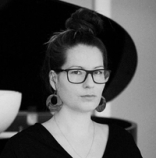
Petra Strahovnik (*1986, Slovenia)
SCREAdoM
“I’m from Slovenia, and the Slovenian war was very short and not that severe for civilians. But I remember, as a five-year-old, the planes flying over our village. Later, during my school years, many refugees arrived in Slovenia, especially from Bosnia. We had one refugee girl as a classmate, and I remember her expression vividly. As a child, you can’t understand why this is happening. Why war exists at all. You simply cannot comprehend the weight of it. No sensitive soul can comprehend what we humans are capable of doing.
When this project came up, I was already living in The Hague. I have many friends and colleagues who worked for the Yugoslav Tribunal — as translators, lawyers, advocates. Through them, I came across the testimonies of victims who experienced horrific things. My piece is based on the text of an anonymous “Victim 87”. She tells her story of being raped during the Yugoslav wars, by officers in Bosnia.
Even before I found the text, I had this sound-image in my mind: one stretched scream of horror — the “I cannot believe this is happening” as a civilian in a war zone. Everything is fragile there. You open the door — and it is happening to you. You can’t believe it, but it is here. I wanted to capture that stretched moment of horror, of rape, of someone entering your privacy, your mind, your emotions, your body. It’s a very violent intrusion. A traumatic experience that leaves deep wounds. To achieve that, I used vocal techniques known from the world of extreme metal vocalists. It’s all about that stretched, horrible time moment that doesn’t go away. That was my focus.
Later I wrote an epilogue to SCREAdoM, “The Voiceless – The Starving Children in War Zones”, which gave voice to the pain of women affected by sexual violence in times of war. UnScream turns our attention to another atrocity: the silent suffering of children facing starvation in conflict zones. At its heart is a gesture of solidarity. The voices you will hear – screams – were donated by children, teenagers, and students from across Europe. They offer their voices for those who can no longer scream, for those whose hunger is met with silence. It is raw, immediate, and emotionally urgent. It was created in response to the humanitarian catastrophe in Gaza and other war-torn regions. Prompted by the manmade nature of famine today, declared by the WHO and shaped by political choices, and by attempts to silence critical voices such as UN Special Rapporteur Francesca Albanese, this work refuses to look away. It is both a lament and a protest. A sonic plea. A reminder that we, as a global society, are failing our most vulnerable. With deep gratitude to all who lent their voices to speak for the voiceless.
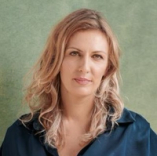
Nina Perović (*1985, Montenegro)
Apparatus
“In my piece I dealt with the theme of violence. At that time, I was completely absorbed by it. I just couldn’t grasp it. How was this possible? Why couldn’t Yugoslavia separate peacefully? Why did it have to become such a brutal war? Why did people do things that are beyond description?
I was reading witness testimonies. Soldiers ordering fathers and sons to do certain things under threat of death… I asked a friend of mine, who worked as a court translator, how she coped with all of this. And she told me: “Don’t rationalize. Take a pill, scream, breathe, take a walk. You need to let your anger out first. Because we cannot understand this on an everyday level.” So how do we translate that into art? How do you turn war trauma into music?
I recorded myself breathing and thinking about it. The sound of breath dominates the piece. I was working with the triangle of victim, perpetrator and bystander — and the question of responsibility for everything that happened (within that triangle).
I had just completed three years of socio-psychodrama training, and I used elements of it in this piece as well. The singers take on roles — “Yugoslavia”, “Justice” “Us” (people), etc. and pronounce the phrases that were originally spoken in a socio-psychodrama session that involved participants from the former Yugoslavia.
At first I thought this commission had to do with my personal life experience. I was born in Bosnia and Herzegovina, in Mostar, but we escaped to Montenegro just before the war started. Then we had to escape Montenegro when the war almost reached there. We fled to Cyprus, lived in London, and later returned to Montenegro.
So yes, we escaped — but the theme is still sensitive. For the second version of the piece I included original videos my parents filmed during the 1990s in Yugoslavia — footage from our family while we were moving around. It seems the camera was their way of coping with trauma. There are many meditative episodes where the family and friends are just there, doing nothing but filming. But you can clearly see on most of the faces that they are traumatized, while children are always playing and having fun.
For me, working with those old family videos was like completing the process of going through the experience of encountering the war, from a far distance. Only by working with that video materials in a newer version of the piece — reflecting on the perspectives of my parents, and of myself and my brother — did I gain strength and insight.
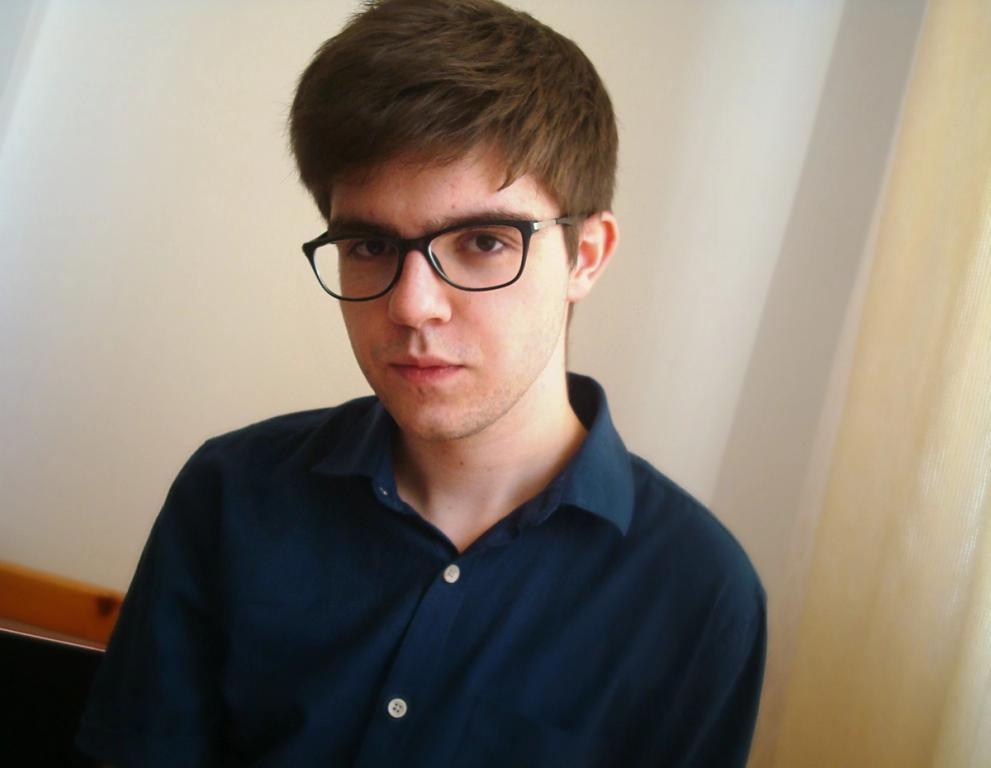
Ylli Daklani (*1998, Kosovo)
When all the leaves have been burned
In 1974, Jugoton - a record label in ex-Yugoslavia released a folk album performed by members of the Rugova Autochthonous Folk Ensemble, a Kosovo Albanian song and dance ensemble founded in 1947 which is still active today. The album features some fascinating Rugova folk traditions such as Rugova’s sword dance, kënga e fytit e grave (women’s throat singing), kënga maje krahu (song over the shoulder), etc. However, the track that struck me the most was Duet Fleta (Leaf Duet) in which the performers use tree leaves to play music — an archaic tradition among shepherds. I was immediately captivated by this tradition and wanted to incorporate it in my piece, so I found a modern solution that resembles this tradition. The ‘burning’ part comes from the experiences that my family and I had during the Kosovo War. I was just a baby when, in April 1999, my family was forcibly expelled from our hometown-Mitrovica and our house was burned down. My family spent the rest of the war as refugees in Albania. After the liberation, they returned and eventually rebuilt the house and their lives. So the burnt leaf in my piece represents the damage caused by the war, the great changes it brought, and the desire and will to heal and bloom again after everything has been burned down.
The text used in the piece also reflects this. It is taken from the opening song of 'Lahuta e Malcís', an Albanian epic poem written by Gjergj Fishta, which was banned in Yugoslavia. The words 'Ndihmo, Zot, si m’ke ndihmue!' translated as 'Help me, God, as you once helped me', are a call to God for assistance once more, this time in the rebuilding process.
Related text: The Fragile Art of Living Together
Related Events
15. November um 18:00